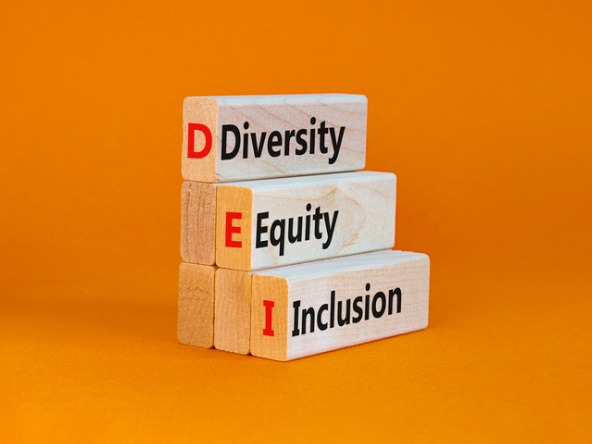‘We’re stronger when we do things together’

The last 12 months have seen an enormous shift in the way the research sector has made itself more diverse, equitable and inclusive. But the overriding message from this year’s CEO panel discussion on the MRS Inclusion Pledge is that much more needs to be done.
As Branka Orosnjak, managing partner at Hall & Partners made clear, the sector may be more diverse and targets have improved but it is still not inclusive enough. “We need to make sure that our offices are accessible to everyone. If we want to retain staff and attract the best – giving them the tools to succeed so they have long careers in this industry – then it’s essential to have an inclusive environment.”
The key, according to some of the most influential leaders in the sector, is to inspire teams to take ownership of the issues. And at least three broad solutions were outlined.
First, the sense of DEI (diversity, equity and inclusion) issues being ‘hardwired’ into the fabric of the company, a word used by Ipsos UK chief executive Kelly Beaver. Not just in terms of attitudes and practices but also measurement. “DEI objectives have been built into the way the top team thinks and operates,” she says. “That’s one of the ways that we’ve been able to get people proactively engaged in this issue. And then by having dedicated targets for apprenticeships, we can instantly see and share the progress that we’re making.”
The industry still doesn’t look like the people that it is trying to understand, added Amy Cashman, executive managing director at Kantar’s Insights Division. The need to broaden access – including to those who may not come into the jobs market from a traditional university route – is essential.
Kantar uses mentorships in this way and Ipsos has its own sponsorship programme to ensure different voices are heard at senior levels. As Beaver outlined, board members sponsor younger people from more diverse backgrounds to progress their careers.
Colour of Research co-founder and i-View Studios chief executive Bob Qureshi stressed that recruitment is key. “We need to think about how we employ people in the first place. Through blind and anonymous CVs, for instance, but also looking beyond conventional education. That also extends to how we recruit for focus groups, to make sure they’re more representative and don’t all look the same.”
Initiatives must go hand-in-hand with targets, added Orosnjak. “We have to repeat and reinforce so that everyone knows we’re committed. That way we move beyond initiatives and embed these principles into our corporate cultures.”
Diversity and inclusivity used to be a tick-box exercise so hard-wiring these issues into our working lives means that interest won’t remain short-lived. “Measurements and metrics are vital,” added Qureshi. “DEI issues need to be a part of our appraisal systems so that we can follow our progress and judge where we need to move towards next.”
The second approach is to ensure staff see the challenges within the sector as their challenges, not simply the responsibility of those at the top. As Vanella Jackson, chair of Hall & Partners, made clear: “Everybody must see it as their responsibility to further things. All must engage. We’re stronger and more influential when we do things together.”
Cashman added: “There’s an amazing groundswell of our people who want to get involved and so it’s hugely important that we encourage them. Leadership has to bring people together in that way and we have to train them with that diversity and inclusion lens, in order to combat inherent biases so that the people we’re hiring come from a broad background.”
Kantar’s allyship programme has been hugely successful in that respect, with senior staff ensuring that those from more diverse backgrounds get the support that they need.
The impact of Covid-19 and the slow rebuild is also an important element. GfK’s global president of sales and marketing Warren Saunders added: “Some of our staff have yet to meet each other, so mentorship and enabling individuals to have a voice is even more important now. We’ve got to build that momentum.”
Third has been the increasing use of external experts to drive change within the industry. The influence of outside influencers has also grown in the past year, with key individuals and organisations helping companies to broaden their perspectives and promoting more of an ‘unconscious awareness’, according to Saunders.
“At Kantar,” said Cashman, “we’ve challenged ourselves to understand issues in new ways by bringing in external speakers with real authority and knowledge. That’s helped drive DEI engagement across the organisation because we’re encouraged to think differently. It’s not just the right thing to do but it’s good for business too.”
All of these measures need to be backed up with a stronger, industry-wide voice so that we can communicate learnings and – as Qureshi stressed – help clients with their metrics so that diversity and inclusion is transformed within their own organisation.
We need to tell people what we’re doing, how we’re changing – not just our clients but the external world. “The more we talk about these issues,” said Orosnjak, “the better it will be for everyone.”
A full recording of the MRS Inclusion Pledge CEO panel discussion is free-to-view in the MRS video library here.

We hope you enjoyed this article.
Research Live is published by MRS.
The Market Research Society (MRS) exists to promote and protect the research sector, showcasing how research delivers impact for businesses and government.
Members of MRS enjoy many benefits including tailoured policy guidance, discounts on training and conferences, and access to member-only content.
For example, there's an archive of winning case studies from over a decade of MRS Awards.
Find out more about the benefits of joining MRS here.












1 Comment
annie.pettit@e2eresearch.com
4 years ago
I'm so grateful to all these groups that have put immeasurable time and effort into making conversations about DEI a reality, and bringing it to the highest levels of organizations. In addition to that, I hope that every individual continues to take positive steps themselves, whether that's insisting on working with a colleague who hasn't had many opportunities, or recommending and fighting for people who deserve opportunities. For the greatest success, we need to address DEI from all angles.
Like Reply Report